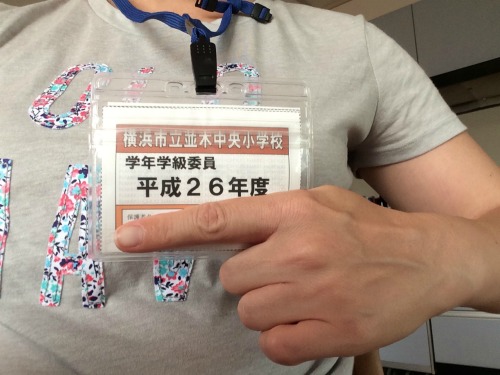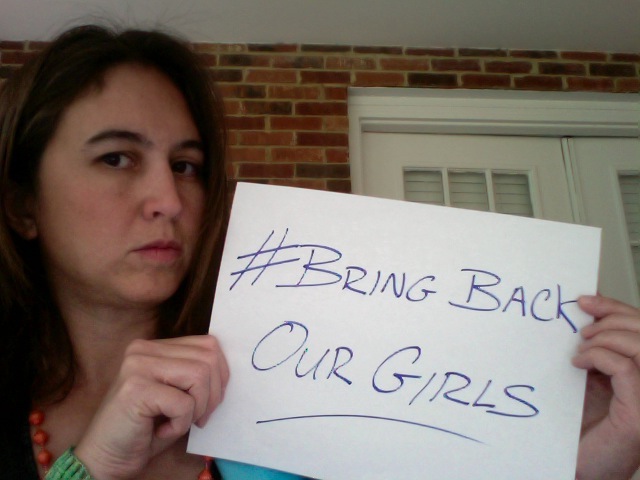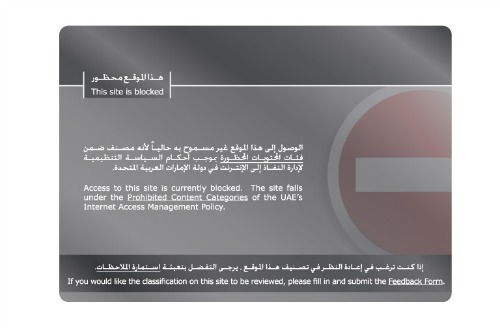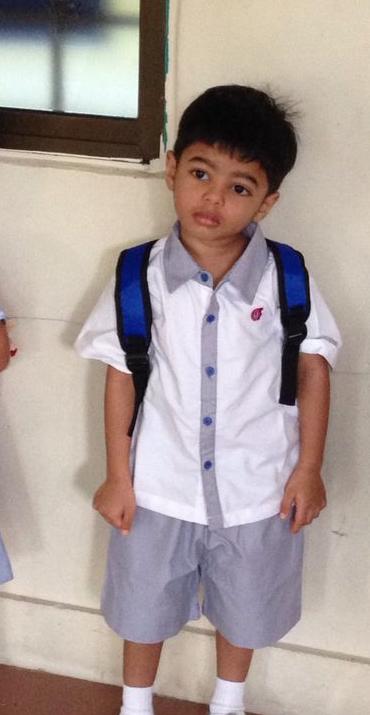
by Karyn Wills | Jun 23, 2014 | 2014, Awareness, Being Thankful, Brothers, Childhood, Culture, Education, Eye on Culture, Kids, Multicultural, Music, Nature, New Zealand, School, Siblings, Traditions, World Motherhood
 It’s mid-winter in New Zealand. The air is crisper than I’ve felt it for a while, the leaves have pretty much fallen and we have had the shortest day of the year.
It’s mid-winter in New Zealand. The air is crisper than I’ve felt it for a while, the leaves have pretty much fallen and we have had the shortest day of the year.
This week also saw the appearance of the star cluster, Matariki, (The Pleiades), which heralds the Maori New Year.
This was not a festival I had ever heard of growing up but it has been revised and reinstated and there are now celebrations being held all around New Zealand. While different tribes traditionally celebrated Matariki in their own fashion, now it is universally marked by the new moon and rising of the Matariki star cluster with festivities running from 1st June to 30th July.
Traditionally, Matariki was a time of celebration, important for navigation and the timing of the seasons. It was particularly relevant to the preparation of the ground for the upcoming growing season and offerings to the gods, and specifically, Rongo, the Maori god of cultivated food.
Only a few New Zealand schools consistently mark mid-winter and Matariki but for our boys’ school, festivals are an important part of the culture and I have two mid-winter events to attend this coming week.
On Wednesday evening, my youngest son has a lantern walk through a public garden. Imagine a waterfall and a large pond with a bridge over it and a stream running throughout. Imagine 30 or so small (3-6 year-old) children clutching a paper lantern with a candle in one hand and a parent’s hand in the other as we meander through the park in, otherwise, pitch black. We will wander past tiny grottos of handmade gnomes and crystals, we will attempt to sing (although for the children, it’s enough that they manage to walk and stay upright!) and we finish gathered together, munching on a star shaped, ginger or shortbread biscuit.
On Thursday evening, my older sons have their mid-winter festival, beginning with a shadow play performed by their teachers. After the play, the children who are between 10 and 14 gather in small groups amongst the trees at school and the youngest children, guided by their lanterns and teachers, meander from group to group and hear the older children entertain them with a song, or a poem or a tune. The 10 year-olds then follow behind the youngest to see the older children’s performances and the 11 year-olds follow them, and so on. They will finish with their classmates and a biscuit and warm drink.
The magic in these events is heart-warming and the children just seem to absorb the atmosphere; they appreciate the small snippets of light amongst the darkness, the companionship, the quiet musicality of the ’entertainment’ and especially the sharing of food at the end! (So do I.)
Do you celebrate mid-summer and mid-winter? How do schools where you live mark these seasonal events?
Sources: NZ Ministry of Culture and Heritage; Wikipedia
This is an original post to World Moms Blog by our writer and mother of three boys in New Zealand, Karyn Van Der Zwet.
The image used in this post is credited to Wikipedia images with editing from Dayne Laird (Ministry for Culture and Heritage, NZ)
Karyn is a teacher, writer and solo mother to three sons. She lives in the sunny wine region of Hawke’s Bay, New Zealand in the city of Napier.
More Posts

by Melanie Oda (Japan) | Jun 5, 2014 | 2014, Japan, Parent Care, School

I have vague memories of the Parent Teachers Association (PTA) in the US, where I grew up. I remember the occasional school-wide meeting being held in the evening and a fall festival here, or there, involving baked goods. I’m not sure how much of my non-memory is due to just being an average kid (that is, extremely self-involved and just not noticing what the grown-ups were doing) or if the whole thing was just lower key.
Or, perhaps, my parents had some choice in the matter.
At any rate, PTA membership in Japan is by default. They take the fees out of your bank account right along with school supplies and school lunch payments. (Lunches her are amazing, by the way. A topic for another post.) I don’t know if it’s possible to opt out, or not. I certainly don’t know anyone who has tried!
The PTA at my children’s school is arranged like a pyramid, and at the top are the officers. Beneath them are the leaders of the four councils: class representatives, safety, and … well, in Japanese they call it “public information”, the group that makes the quarterly newsletter, along with the nomination committee. (These are the guys that try to suck you into being an officer for the next school year). Underneath that are the representatives from each class, and beneath all that is everyone else.
You are expected to serve on one of these councils at least once for each child.
This year, I ended up being the class rep for the first grade.
- Our job is to organize a school lunch “tasting day,” when parents can have lunch at school. But not with their child, in the Home EC room. (Both my daughter and I were disappointed by that.)
- Arrange and execute the washing of all the schools curtains. Twice. (I didn’t realize I should be washing my curtains at home twice a year….oops.)
- Collect and prepare for posting “bell marks,” the Japanese version of “Boxtops for Education,” collecting proofs of purchases that can be exchanged for school supplies.
- And lastly, mending the white smocks that children wear when distributing school lunches (in Japan, the children help prepare the lunch.)
Whew, that was quite a list!
Of course, all of these jobs require multiple letters sent home, which we prepare, and monthly meetings because … well, because this is Japan, perhaps.
Every family without fail is to volunteer for one of the tasks, either washing curtains, helping organize the bell marks, or mending the smocks.
When my oldest child started school, I was really surprised that the PTA were in charge of things that were so nitty-gritty.
I’m pretty sure, for example, the my mother never washed school curtains in her washing machine and then hauled them back to school to hang them up, still wet, after cleaning the school’s curtains rails.
So it makes me wonder …
What is PTA like in your country? Do you have to participate? What kind of things do you do?
This is an original post by our World Mom Melanie Oda from Japan.
Photo credit to the author.
If you ask Melanie Oda where she is from, she will answer "Georgia." (Unless you ask her in Japanese. Then she will say "America.") It sounds nice, and it's a one-word answer, which is what most people expect. The truth is more complex. She moved around several small towns in the south growing up. Such is life when your father is a Southern Baptist preacher of the hellfire and brimstone variety.
She came to Japan in 2000 as an assistant language teacher, and has never managed to leave. She currently resides in Yokohama, on the outskirts of Tokyo (but please don't tell anyone she described it that way! Citizens of Yokohama have a lot of pride). No one is more surprised to find her here, married to a Japanese man and with two bilingual children (aged four and seven), than herself. And possibly her mother.
You can read more about her misadventures in Asia on her blog, HamakkoMommy.
More Posts

by World Moms Blog | May 10, 2014 | 2014, Education, Girls, Government, Human Rights, Humanitarian, International, Nigeria, School, Social Equality, Social Good, Social Media, Women's Rights, World Moms Blog
Abducted. Scared. Abused.
Sold.
That’s the likely fate 276 girls are facing, taken from their schools in the remote reaches of north-eastern Nigeria by the terrorist group Boko Haram. It’s been over three weeks since this started. We don’t what’s happening to them and we all fear the worst.
We’re sickened. We’re outraged. We also have no idea what to do. So, we’re doing what Americans tend to do. We’re taking selfies of ourselves with the #BringBackOurGirls hashtag. We’re tweeting. We’re posting facebook rants. In the lack of anything else to do, we’re signing online petitions by the thousands to make the world pay attention.

I’m not saying this these are bad actions to take. No! I signed the petition myself. I tweeted #BringBackOurGirls. I liked and shared Amy Poehler’s Smart Girl posts on facebook to help focus the national conversation on them. I was thrilled to hear that the U.S. is sending support and I believe social media was a part of that. But after I did those things, I was still sickened. Still outraged. I still didn’t know what to do.
And then I thought of this girl.

Malala Yousafzai. A Pakistani girl shot in the head by the Taliban at the age of 15 who still fights daily for girls’ education knows a little something about this issue, don’t you think? She has said, “The extremists are afraid of books and pens, the power of education frightens them. They are afraid of women.”
Then, let those men be afraid of me. I am even more dangerous than a schoolgirl with a pen. I’m an educated mother with a laptop. And I’m not just coming after them. I’m coming after their whole oppressive way of life.
The welfare of the kidnapped girls rests in someone else’s hands in the short term, but I advocate against poverty and injustice with an eye for the long term. While we wait and we pray for these girls, shouldn’t we be using this anger and anguish to secure a future for all girls coming after them?
If all children were in school as a normal matter of course, then schools with girls would cease to be obvious targets. That fundamental paradigm shift would be more effective than sending a SEAL Team in to get the girls (even though that is what I dearly want to happen right now) because educated and empowered girls become mothers who raise enlightened sons.
Here’s another Malala quote:
“Our men think earning money and ordering around others is where power lies. They don’t think power is in the hands of the woman who takes care of everyone all day long, and gives birth to their children.” But the men are wrong. Indeed, the hand that rocks the cradle rules the world.
So, what concrete actions can we – as Americans – take right now to hasten this reality? We can start by demanding that our U.S. Representatives pass the Education for All Act (H.R. 2780), which specifically calls out victims of human trafficking as some of the most vulnerable children to help. We can also call on them to sign U.S. Representative Jan Schakowksy’s letter to the Obama administration to fund $250 million over 2 years to the Global Partnership for Education, which aims to raise $3.5 billion from donor governments at a pledging conference this June. With $3.5 billion invested by donors, the Global Partnership can secure an additional $16 billion from developing country governments. By 2018, that investment can support quality education for 29 million children, largely in fragile and conflict-affected states.
As badly as we need the #BringBackOurGirls social media awareness today for the 276 girls we keep vigil for, these two steps are even more needed in the long run to help millions of other girls at risk now and in the future.
So, after you’ve tweeted and posted your selfie on facebook, do not stop there. Click on these links to contact your U.S. Representative about the Education for All Act and the Global Parntership for Education. Tell them that girls are showing incredible courage just to go to school, and the U.S. should support them. Educating all girls and boys will create a world where kidnapping and selling students is not acceptable in any culture on the planet.

This is an original Post for World Moms Blog by Post by Cindy Changyit Levin who writes the Anti-Poverty Mom blog and is volunteer advocate for RESULTS, Shot@Life and the ONE Campaign. She can also be found on twitter @ccylevin.
Are you ready to take action?
World Moms Blog is an award winning website which writes from over 30 countries on the topics of motherhood, culture, human rights and social good. Over 70 international contributors share their stories from around the globe, bonded by the common thread of motherhood and wanting a better world for their children.
World Moms Blog was listed by Forbes Woman as one of the "Best 100 Websites for Women 2012 & 2013" and also called a "must read" by the NY Times Motherlode in 2013. Our Senior Editor in India, Purnima Ramakrishnan, was awarded the BlogHer International Activist Award in 2013.
More Posts

by Meredith (USA) | Apr 25, 2014 | 2014, Awareness, Communication, Education, Family, Gun Violence, Kids, Life Lesson, Motherhood, Parenting, Safety, School, Tragedy, USA, World Motherhood, Younger Children

Growing up in Illinois, when I was in elementary school, it was commonplace for our school to have several emergency drills in case there was a tornado. We knew to hide under our desks and cover our heads with our hands and wait until the drill was over. The thought behind the drill was that we would be ready if a disaster ever struck. We followed up with fire drills as well. We prepared for what we knew could happen but hoped would never happen to us… (more…)
Meredith finds it difficult to tell anyone where she is from exactly! She grew up in several states, but mainly Illinois. She has a Bachelor of Science degree in Elementary Education from the University of Illinois at Champaign/Urbana which is also where she met her husband. She taught kindergarten for seven years before she adopted her son from Guatemala and then gave birth to her daughter two years leter. She moved to Lagos, Nigeria with her husband and two children in July 2009 for her husband's work. She and her family moved back to the U.S.this summer(August 2012) and are adjusting to life back in the U.S. You can read more about her life in Lagos and her adjustment to being back on her blog: We Found Happiness.
More Posts

by Mannahattamamma (UAE) | Mar 19, 2014 | 2014, Computers, Cultural Differences, Culture, Education, Expat Life, Government, Homeschooling, Living Abroad, Multicultural, Older Children, Politics, Religion, School, Social Media, Traditions, UAE, USA
 I always swore I would never home-school my children. I know many people do, and do it quite successfully, but I’m awfully fond of the quiet that descends on my house after they’ve tromped off to school. If that tromping were only happening from the bedroom to, say, the kitchen table, I think I might simply lock myself in the bathroom and never come out.
I always swore I would never home-school my children. I know many people do, and do it quite successfully, but I’m awfully fond of the quiet that descends on my house after they’ve tromped off to school. If that tromping were only happening from the bedroom to, say, the kitchen table, I think I might simply lock myself in the bathroom and never come out.
But as so often happens, my vow has collided with reality and I have found myself, in recent weeks, trolling home-schooling websites in search of teaching resources. My kids are now 9 (nine and a half, he would say indignantly) and 13; they go to a British school here in Abu Dhabi. That means they’ve spent a lot of time learning various English kings and queens, although they can’t recite them all in order. They study “maths,” and do prep rather than homework; they study English history and geography; they read mostly English writers in their literature classes. In addition to all those Anglo studies, they take Arabic language classes four days a week and once-weekly class called “Islamic Studies.” The Arabic classes are mandated by ADEC (Abu Dhabi Education Council) and I have to say, I’m much more interested in my kids learning Arabic than I am in their ability to name all the English kings and queens.
Having the boys be in an English system has been a learning curve for all of us. We’re learning two languages, actually, Arabic and, well, English: the boys now live in a world where things are “grey,” luggage goes in the “boot,” and we put garbage in the “bin.”
I’m not considering a dabble in the home-schooling system in order to beef up my boys’ appreciation of the Queen’s English, however. My kids, like every schoolchild in the country, have a curriculum that is at least in part determined by the UAE government, and that means there are things that aren’t supposed to be taught. I live in a place where censorship happens and where, unlike the States, the policies cannot be overtly challenged in the courts. So, for instance, in the States if you live in a town where they want to ban the Harry Potter books, you can take the school district to court. Not here.
We had to sign a permission slip so that our older son could get the science textbook that included the chapter on reproduction (with pictures of, you know, the embarrassing bits); his Latin class translates vinum as … grape, not wine. These are relatively small annoyances, although of course they are far from ideal.
There are, however, more serious concerns in terms of what shouldn’t be included in history courses and literature courses, and that’s where I find myself trolling the home-schooling sites for resources. The Holocaust can’t be taught here; Israel and Judaism are not supposed to be mentioned here; communism isn’t supposed to be discussed; evolution isn’t supposed to be taught; and the list goes on. Sometimes it feels as if we’re living in some kind of Bible-thumping town in the rural U.S and I realize, yet again, that fundamentalism can be seen as a global phenomenon that differs only in the nature of its prohibitions: the fear that motivates the prohibitions stays constant.
Before you leap to any conclusions, please know that the Muslim families I know are as frustrated by these government-issued edicts as are the non-Muslim families and many of us have talked together about what we can do to help our children gain a full picture of the world, regardless of what the government says. So it is that what in some contexts (living in Manhattan, for instance) would be a purely theoretical discussion has become in our household, a very pragmatic series of conversations.
Think about it: how would you talk to your kids about censorship? Is censorship always bad? Think about your children, if you have them, and the internet: are there sites you say they can’t see, or have you put a filter or something on your computer to prevent certain kinds of access? Do we agree that there is such a thing as “good” censorship? (Because of that whole teenage-boy-surfing-the-internet thing, I see a (slight) upside to living in a “nanny state.” I am fairly sure that if he wanted to look, my son wouldn’t be able to find basic porn–not to say that if he really wanted to dig around he couldn’t elude the censors, but at this point, I think his porn-directed vocabulary is still too limited to get around the government blocks. I guess we file that under “thank goodness for small favors,” right? )
My husband and I are both professors, and so we are able to bolster and supplement what isn’t happening in school, but we are also having a lot of conversations with our kids about censorship, politics, and the necessity of thinking about things in ways that are different from how we might think about them. We point out that the UAE isn’t Saudi Arabia; there is no Taliban here; the country is not governed by a theocracy of any sort. We know Jewish families who live here; I know gay couples who live here; a Mormon family lives next door to us. I see people on the beach in the scantiest of scanty bathing suits.
Living here means coming to term with nuance, with ambiguity, with living in a world that is organized around “both/and,” rather than “either/or.” The country is progressive and conservative; censorship is a problem that has a context; learning happens as much from what is not there as it does from what is there. It’s complicated and let’s be honest — no nine year old, no thirteen year old—and very few adults—really likes ambiguity. After all, if there is no “in-between” answer, life becomes much easier, doesn’t it?
No, of course I’m not happy that my kids have a biology textbook with the word “pig” marked out. Of course, I’m also not pleased that the Anglo-centric curriculum also neglects things like the US Civil War, other than in the most general sense. But I will say that I think it is, and will continue to be, a powerful learning experience for my children (and us) to have to confront and think about what it means to live in a place where the government attempts to exert such extensive control. I like to think that, paradoxically, these attempts at censorship will make my children more open-minded adults.
Have you ever been confronted with censorship? How have you dealt with it?
After twenty-plus years in Manhattan, Deborah Quinn and her family moved to Abu Dhabi (in the United Arab Emirates), where she spends a great deal of time driving her sons back and forth to soccer practice. She writes about travel, politics, feminism, education, and the absurdities of living in a place where temperatures regularly go above 110F.
Deborah can also be found on her blog, Mannahattamamma.
More Posts
Follow Me:


by Veena Davis (Singapore) | Feb 27, 2014 | 2014, School, Singapore, World Motherhood, Younger Children
 My Little One started school during the New Year, and it was with great trepidation that we approached his impending education. And this was for many reasons…
My Little One started school during the New Year, and it was with great trepidation that we approached his impending education. And this was for many reasons…
For one thing, he knew no other language but our native tongue. And we were very concerned about how he’d interact in school. In fact, we were more concerned about how the teacher could understand him as there was no one who spoke or wrote the language at his school.
Second, this was truly his first foray into the outside world. He has lived a very sheltered 4 years, and was always at home with nearly no interaction with peers of his own age. This wasn’t intentional, rather, it just happened that everywhere we lived, the kids were always much bigger than him; and, he was also very shy.
Third, was for ourselves. We really had no clue on how to go about educating a little child. Both of us remember our mothers teaching us, but that was when we were much older. How does one go about getting a 4 year old to hold his pencil and learn the alphabet? What does one do when he says he wants to play now and study later? Do we force him to learn, or just let it go?
Despite our misgivings, our son started school on Jan 2nd, and the first day went okay. The school permitted parents to sit with kids on the first day, and we had a nice time watching the proceedings. The second day was when the waterworks started, and that lasted till last week.
Every morning, he’d wake up even before the alarm, and ask me if it was time for school. It is heart-wrenching to hear that plaintive tone in his voice…but as advised by many, we were not taking no for an answer. Come rain or shine, he had to go to school.
Then came the homework – for the first time, he had to write “A,B,C”, and we weren’t really sure how to tackle it either. Since neither my husband, nor I, were too endowed in the patience department, we didn’t have such a great time these past 2 months. Most days were filled with screams and cries as we forced the little thing to hold his pencil and write. And you know the funny thing – after we had screamed at him for inverting his Bs or not getting the right slant for his As, he would come up to us after an hour or so, and write a perfect A and B.
I know, we were horrible to him – and our only excuse is that we didn’t want to appear to be too lenient and that he get the impression that it was okay not to want to learn. And I don’t know if it was the terror of the home classes that made it doubly difficult for him to adjust to school, where everything was foreign to him.
You see, we feel like we are living a race now – once we get back home after work, we just have time for a bath and to eat, as Little One must be in bed atleast by 10, so that he wakes up fresh at 7 the next day for school.
But two weeks ago, we made the decision not to pressure him so much – because we were also distressed on seeing his pitiful face every time he had to learn something. We decided that any homework would be finished off speedily by holding his hand and helping him write it, while learning it would be done during the weekends, when there was no pressure on any one.
And I don’t know if it was this decision, or as Little One has made friends and adjusted to school – but since last week, he hasn’t cried at all when going to school. He seems more happy about school, and he keeps singing songs they sing in school. He tells me about the kids in his class (he is already interested in girls) and what he ate and the general happenings in school.
And the atmosphere at home is also different now, with him being happy about school and life in general feels so much more lighter and happier. The lesson I’ve learned from the school fiasco is not to pressurise kids so much that they lose all zest for life. His sad face, and moping around all evening was so depressing, and frankly, I was dreading the years up ahead.
After all, he is just 4 years old, and he is a bright little spark. Let him have his fun and the learning will come slowly.
Have you ever faced a situation like this? What do you do to get your kids to study?
Veena has experienced living in different climes of Asia - born and brought up in the hot Middle East, and a native of India from the state known as God’s Own Country, she is currently based in the tropical city-state of Singapore. ⠀ ⠀ ⠀ ⠀ ⠀ ⠀ ⠀ ⠀ ⠀ ⠀ ⠀ ⠀ ⠀ ⠀ ⠀ ⠀ ⠀ ⠀ ⠀ ⠀ Several years ago, she came across World Moms Network (then World Moms Blog) soon after its launch, and was thrilled to become a contributor. She has a 11-year old son and a quadragenarian husband (although their ages might be inversed to see how they are with each other sometimes). ⠀ ⠀ ⠀ ⠀ ⠀ ⠀ ⠀ ⠀ ⠀ ⠀ ⠀ ⠀ ⠀ ⠀ ⠀ ⠀ ⠀ ⠀ ⠀ ⠀ ⠀ ⠀ ⠀ ⠀ ⠀ ⠀ ⠀ ⠀ ⠀ ⠀ ⠀ ⠀ ⠀ ⠀ ⠀ On a professional front, she works in the financial sector - just till she earns enough to commit to her dream job of full-time bibliophile. ⠀ ⠀ ⠀ ⠀ ⠀ ⠀ ⠀ ⠀ ⠀ ⠀ ⠀ ⠀ ⠀ ⠀ ⠀ ⠀ ⠀ ⠀ ⠀ ⠀ ⠀ ⠀ ⠀ You can also find Veena at her personal blog, Merry Musing. ⠀
More Posts - Website

 It’s mid-winter in New Zealand. The air is crisper than I’ve felt it for a while, the leaves have pretty much fallen and we have had the shortest day of the year.
It’s mid-winter in New Zealand. The air is crisper than I’ve felt it for a while, the leaves have pretty much fallen and we have had the shortest day of the year.
















